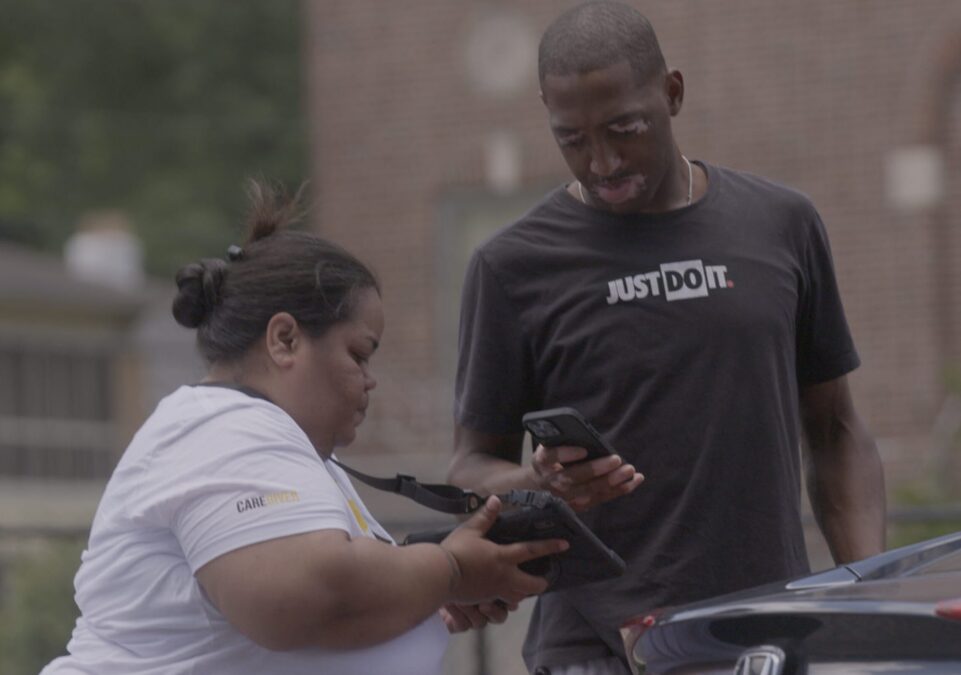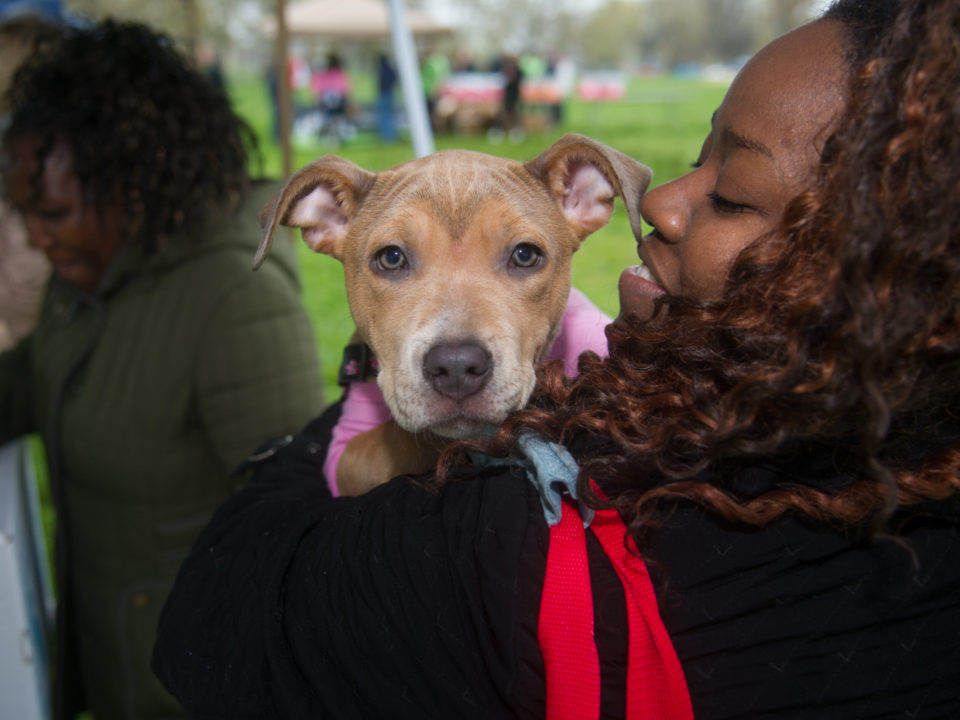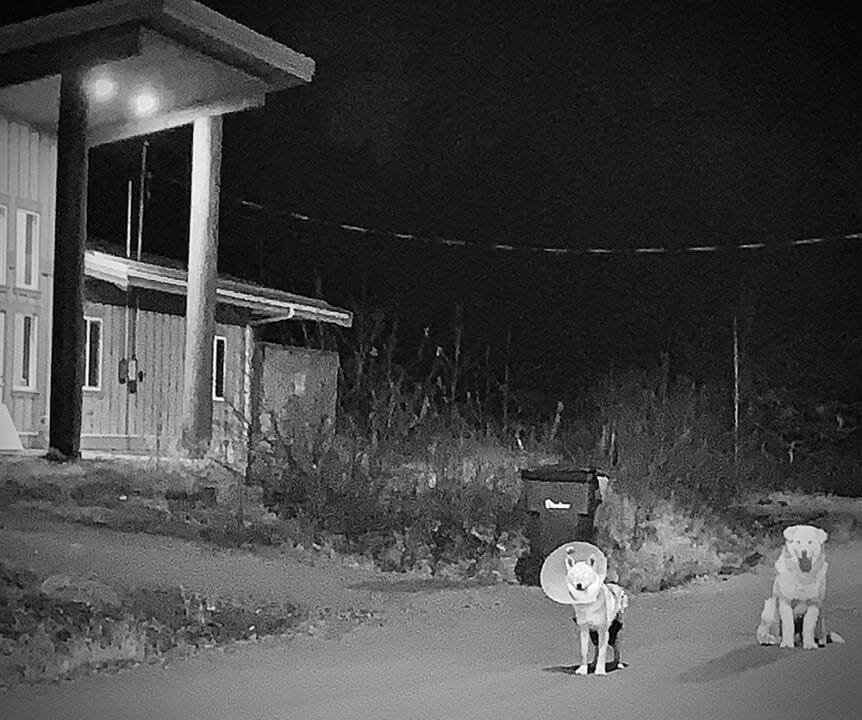
A Renewed Conversation about Pets and Housing Policy
April 28, 2025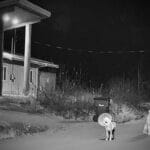
Field Notes on Animal Management
January 21, 2026The Impact of a Conversation
By: Michelle George, National Director of CAC Operations
The impact of a conversation can lead to many things. Have you ever been a party to a conversation that you wish you could have stuck in your pocket for a rainy day? In the past two years, I have had a few; and once even told that no one would believe me if I were to say I met them during what could have been, on my end, a missed opportunity with the push of a button. Since then, I have met even more people and through conversations have left with a lasting impression leading me to believe that one day this world could be a better place if only we would accept and support one another as we are. Before moving forward on this conversation, let me introduce myself and advise this is a community-centered conversation meant to invoke change and action.
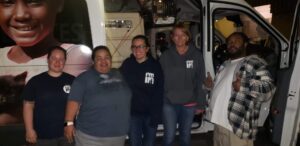
My name is Michelle George. I currently reside about 10 minutes outside the city limits of Atlanta and I work in Atlanta and surrounding areas. I am the National Director of Community Animal Care Operations for Companions and Animals for Reform and Equity. I lead a team that focuses on human and animal well-being. My experience before this included a 12-year journey within animal welfare. You may be thinking what is so different about the two. Let me shine some light.
Animal welfare, from my experience, has had a focus on ALL things animals within the shelter with little time to focus on anything else, but most overlooked, limited input and conversation from the communities they serve. While often believing and implying a false narrative that blames these communities for pet-related needs not being met; animal welfare often is the catalyst in this field that may jeopardize pets and their people remaining together, often severing the bond between people and pets. Human and animal well-being shifts the focus on understanding how pet well-being is directly related to human well-being; and by addressing human-related needs, pet-related needs are more likely to be met; which means pets and people are less likely to be separated. Another fun fact about me, I originally applied for my position within animal welfare to get away from people and just deal with animals. How wrong could I be?
I could write a book on the many ways animal welfare could change, but without sharing a glimpse into what is going on behind shelter doors, would anyone read it? Probably not. Instead, my team and I look to equip our communities with information and resources while shining a light on the issues within animal welfare so that our communities engage with the field to shift the narrative and show animal welfare that the answers and solutions they are looking for are outside the shelter walls WITHIN the communities they serve.
For animal welfare professionals, what would you need to become more community-centered, more proactive and less reactive, and more trusting of the communities you serve?
For communities, this includes community members, neighborhood associations and planning units, neighborhood businesses, city, county, and state leadership, what do you need to engage with animal welfare professionals and make meaningful change within the human and animal well-being space?
(click on the link at the end of the blog to answer these questions)
This brings me to a week full of conversations in mid-late June 2025. A conversation between Kismet, and our Director of Philanthropy, Jessica Suarez, led to confirming a donation of 10 pallets of Kismet dog food for the Atlanta community. Now our Community Animal Care (CAC) team in Atlanta, myself and Mikki Arnold (National Community Animal Care Operations Specialist) could prepare to receive 10 pallets, holding 50, 19 lbs bags. Thanks to Maddies’ Fund, we rent a warehouse space that allows us to accept 500 bags of food, which is often a barrier for smaller organizations to collect the delivery with the proper machinery and store it safely.
Even more beneficial, this would not be a one-time offer, but likely to continue in Atlanta and our other locations in Philly, Bemidji, and Los Angeles. And what is the number one thing that most pet owners in our service areas report as a need? Pet food. Not just any pet food, but access to quality pet food. And look at me, I hadn’t even heard of the Kismet brand until Jessica arrived at our Atlanta Warespace unit to help receive the donation. When I asked for the amount I needed to record for the in-kind donation, I thought to research the brand, but at the moment we needed to plan for distributing the donation of Kismet dog food. Remind me to come back to my research of the Kismet brand.
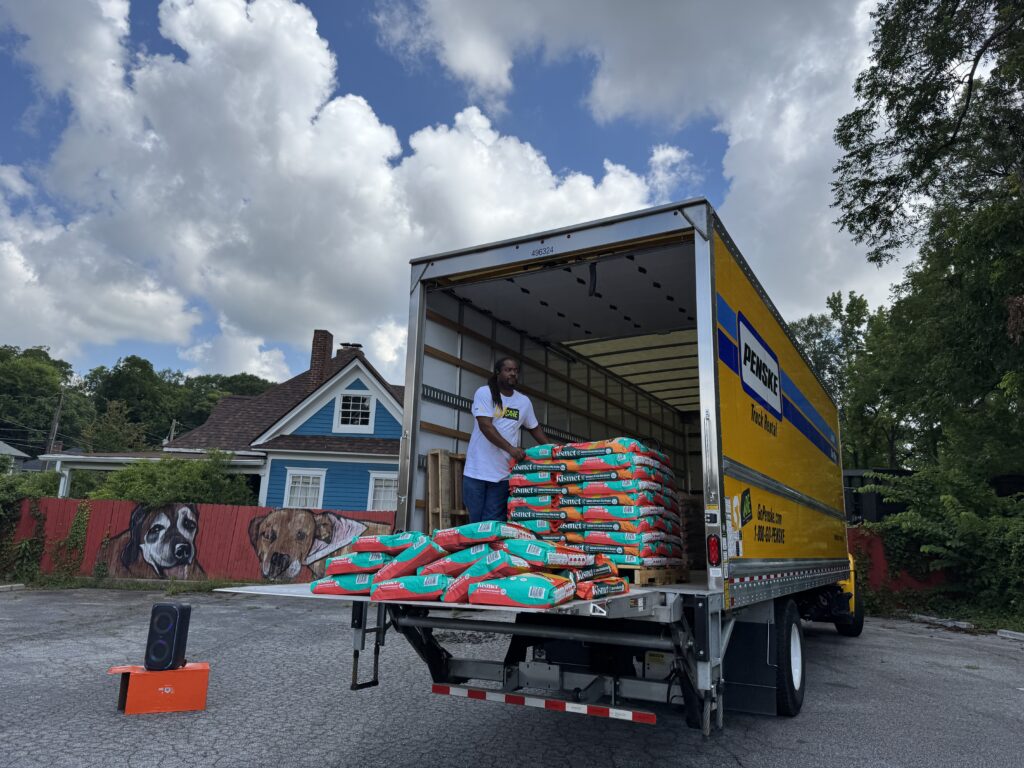
Our current Atlanta service area falls within the zipcode 30310, with Ralph David Abernathy Blvd SW being the closest main street near the only veterinary office within 30310. There are no major Pet Stores. The major grocery chain is Kroger with Big Bear Grocery being a staple in the community for as long as I can remember; no Whole Foods or Sprouts Farmers Market or even a Publix. West End Mall, which thrived into the early 2000s, is merely a shell of a building and a parking lot, replaced by what I would call the warehouse district which has only grown in the past 5 or so years to become what it is, along Lee and White Streets and Murphy Ave. THE ONLY veterinary office, mentioned above, is West End Animal Wellness Center. Also a CARE Center partner, West End Animal Wellness Center granted us use of their parking lot to distribute the Kismet donation.
In preparation for the Kismet donation drive, CARE team members joined by Atlanta CARE Center partners, PetSmart Veterinary Services, and volunteers, who dropped by, helped load up, and distributed the dog food while highlighting partners and the work they are doing within the community and sharing information with the community on various topics. Within 3 hours, 400 of the 500 bags of Kismet dog food had been dispersed with less than a pallet left at the Warespace as individual community members and partners reached out shortly before or after the donation drive. If you haven’t Googled Kismet by now, I am telling you now, please do? My research led me here https://kismetpets.com/about-us and let me tell you it will not disappoint.
During the Kismet donation drive and through conversation, we found that one community member had lived in the area for years and never knew West End Animal Wellness Center existed. One community member, whose tricolor Bully jumped out of their vehicle, let us know the Bully knew his surroundings and was already a client at West End Animal Wellness Center. After the Bully checked us all out, he jumped back into his vehicle. At least one community member came back to West End Animal Wellness Center for services. These are just a few insights from this event.
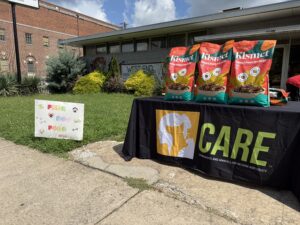
The impact of conversation presents the opportunity to learn, to exchange ideas, to brainstorm, to make better, to provide resources and so much more. I want to take this time to thank the Kismet brand, Tara, and everyone who made this event possible. It was so much more than just giving dog food to the community. I look forward to many more opportunities to make an impact through conversation. So back to the beginning of the conversation and the need to invoke change and action.
Our animal shelters face the challenge of caring for hundreds of pets and animals daily. The past two years have taught me that animal welfare as an industry does not have all the answers. Public and private. It has taught me that we are not going to No-Kill or spay/neuter our way out of the overpopulation of pets. Many animal welfare organizations lean inward for advice from other animal welfare professionals and organizations on ways to be more community-centered without community input. They fall short in efforts to seek and explore possibilities and share information with the communities’ input in a meaningful way.
They need our communities’ input on the best practices to engage, share information, ways to support communities they serve, and more. Animal welfare needs to know when a person steps up or comes forward on behalf of their pet, it should not just be about what they need to do for their pet, but how can we ensure that your pet stays with you. They need to be able to stop and listen and provide resources whether it is a human or animal referral for services.
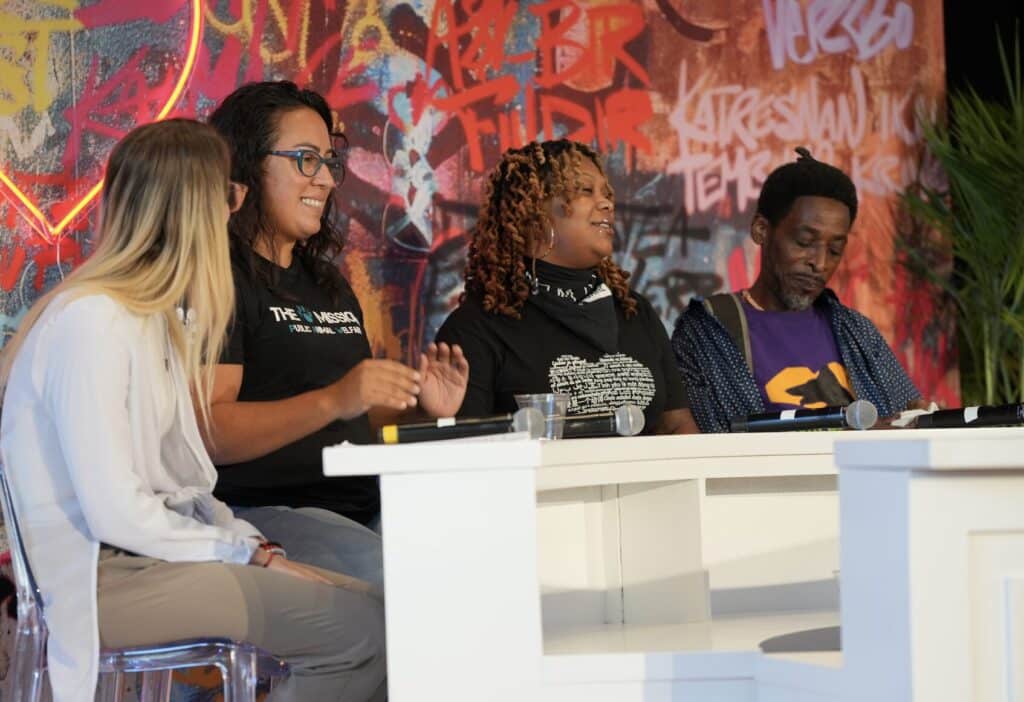
Those conversations can only start and continue within our communities. Conversations that will definitely speak to changes that not only need to occur inside the shelter, but outside as well, and include the involvement of almost every other industry outside of animal welfare. Animal welfare has space for basic needs, veterinary care, preventive care, behavioral training and modification, housing, insurance, social work, mental health, and much more to truly make the change that is needed. Our pets and animals should be included in every aspect of our way of life. Initiatives that are in place to assist people should also have a component that assists pets and animals.
What conversation will you be a part of?
Until we meet again for the next conversation, feel free to email cac@careawo.org, if you are interested in ways to engage and become involved.
We know you have answers! Share your responses to Michelle’s questions here.


